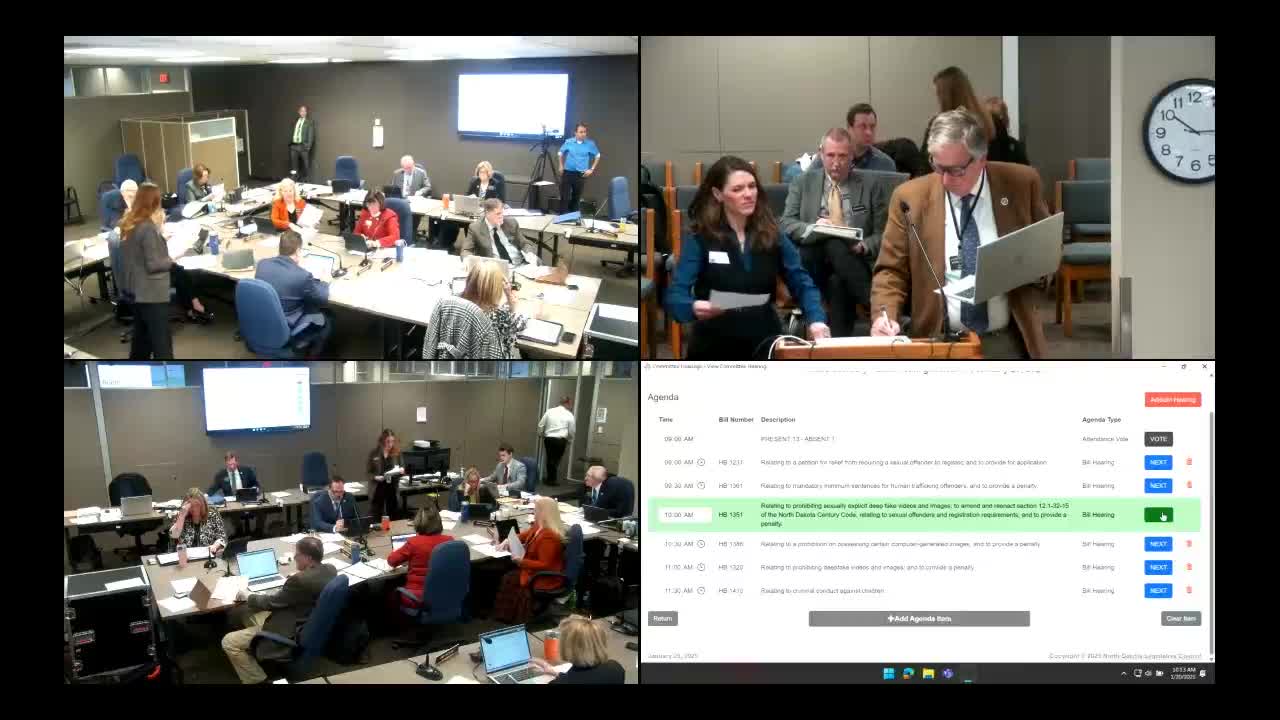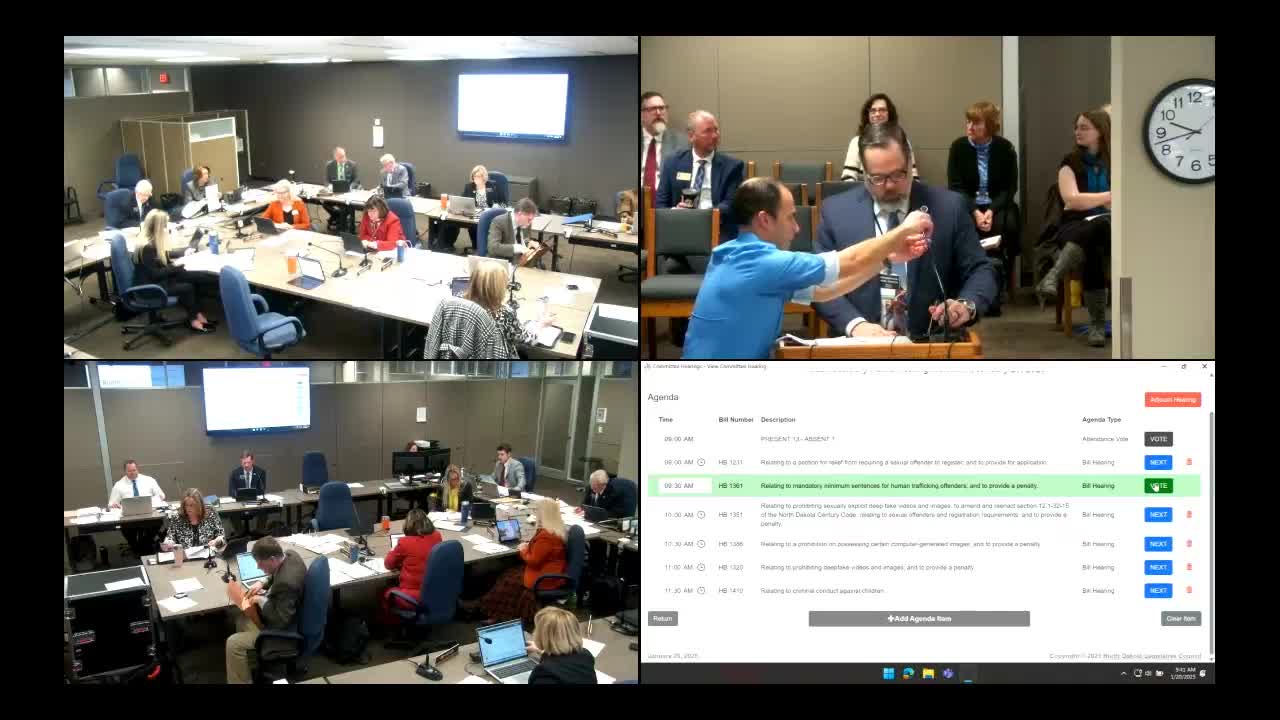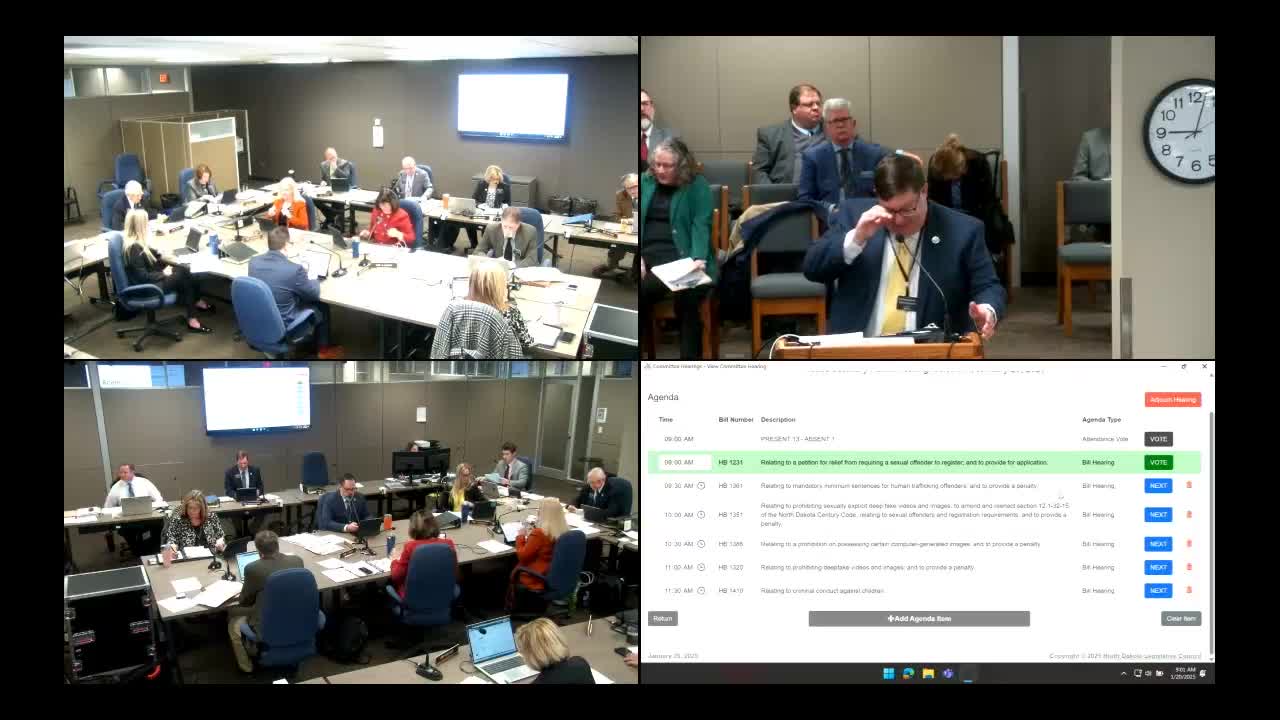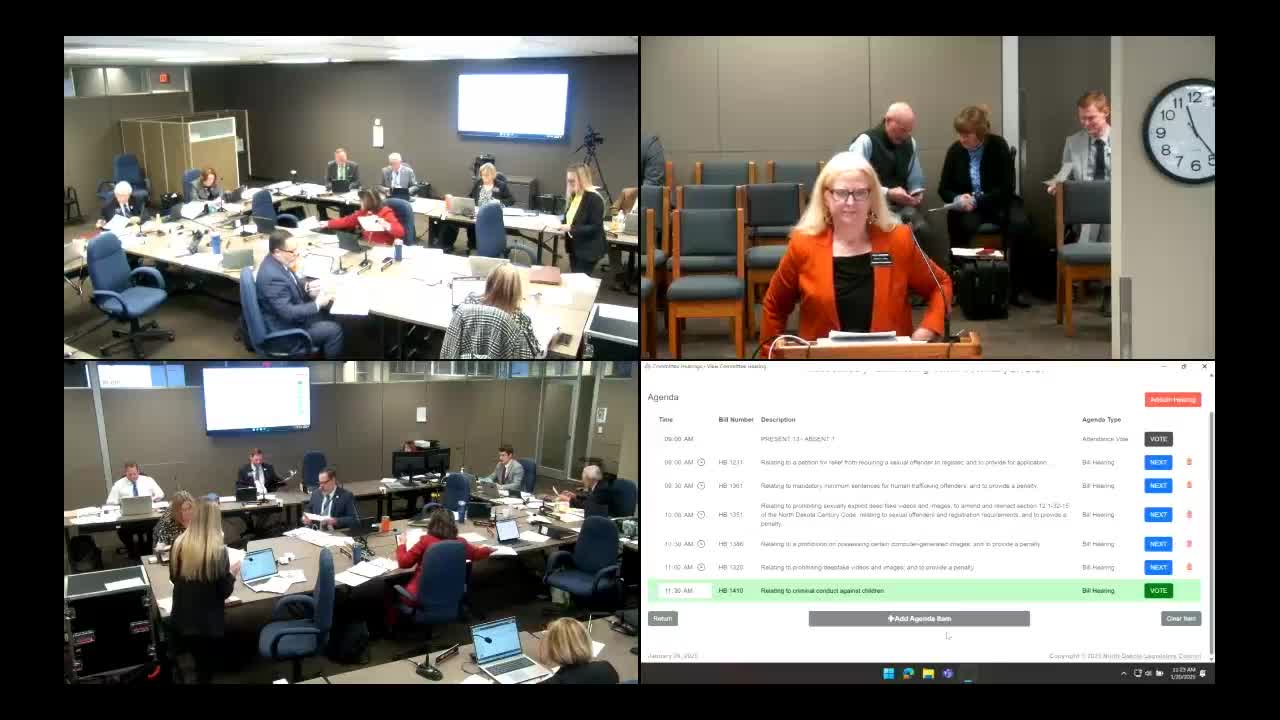Article not found
This article is no longer available. But don't worry—we've gathered other articles that discuss the same topic.

Committee examines several bills to criminalize computer‑generated child sexual imagery and to clarify penalties

Committee hears bill seeking stricter mandatory minimums for human trafficking offenses

Committee hears bill allowing rehabilitated low‑risk registrants to petition for removal from public registry

